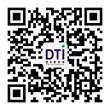Children's building block toys EU EN71 testing process
Date:2025-06-06 10:07:59 Classification
:【question】 Visits:
Children's building block toys EU EN71 testing process, in order to ensure the safety and compliance of children's building block toys in the EU market, manufacturers need to conduct EN71 certification testing. EN71 is the European toy safety standard, covering mechanical and physical properties, flammability, chemical content and other aspects. The following is a detailed EN71 testing process:
1. Determine the applicable standards
First, manufacturers need to determine the parts of the EN71 standard that building block toys need to comply with, usually including:
- EN71-1: Physical and mechanical properties test, including drop test, small parts test, sharp edge test, etc.
- EN71-2: Flammability test to ensure that the toy material does not burn quickly when exposed to a fire source.
- EN71-3: Migration test of specific elements, mainly for heavy metals and hazardous substances that can migrate in accessible parts or materials in toys.
2. Prepare technical documents
Manufacturers need to prepare complete technical documents, including:
- Product specifications
- Design drawings
- Material list
- Manufacturing process
3. Sample preparation
Prepare a certain number of building block toy samples according to the requirements of the certification body and send them to the designated laboratory for testing.
4. Laboratory testing
The testing laboratory will conduct a series of tests on the received samples, including:
- Physical and mechanical tests: carried out in accordance with EN71-1 standard to check the size, shape, strength, etc. of the toys.
- Flammability test: tested in accordance with EN71-2 to evaluate the burning rate of the material.
- Chemical test: carried out in accordance with EN71-3 and related parts to detect the migration of heavy metals and hazardous substances.
5. Issue report/certificate
After the test is completed, the laboratory will issue a corresponding report or certificate based on the test results to prove whether the product meets the requirements of the EN71 standard.
6. Testing cycle
The testing cycle is generally 5 to 7 working days, but may vary depending on the complexity of the product and the laboratory schedule.
7. Cost
The cost of EN71 toy testing varies depending on the type of toy, complexity and test items, and is generally around 1,000. The specific cost needs to be determined according to the actual situation.
8. Continuous compliance
After obtaining EN71 certification, manufacturers need to continuously ensure that the product meets the requirements of the EN71 standard and update or retest when necessary.
9. CE mark
Toys that have passed EN71 certification can be affixed with the CE mark, indicating that the product meets the requirements of the EU market.
10. Select a certification body
Selecting a suitable certification body is a key step in EN71 certification. A certification body with rich experience and a good reputation should be selected to ensure the smooth progress of the certification process and the reliability of the final results.
Through the above steps, manufacturers can ensure that their building block toys meet the EU's toy safety standards and thus enter the European market smoothly.




 Shen Gongwang Security: 44030602006947
Shen Gongwang Security: 44030602006947